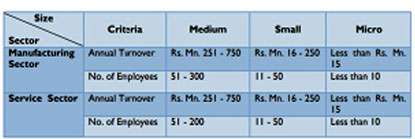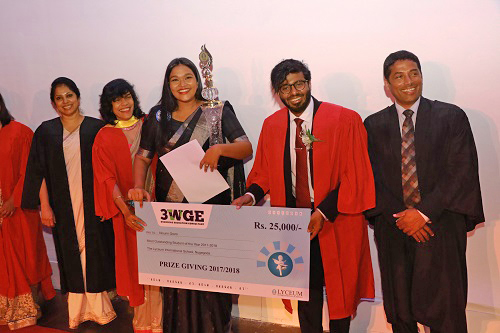Power of Branding and the potential of SMEs
 The Government of Sri Lanka recognises SMEs as the backbone of the economy, as it accounts for more than 75% of the total number of enterprises, provides 45% of employment, and contributes to 52% of the Gross Domestic Production (GDP). SMEs promote broad-based equitable development and provide more opportunities for women and youth participation in the economic development of the country. With the current economic meltdown, the importance of the SME sector is felt more than ever as the economy is bleeding due to the overdependency on imports.
The Government of Sri Lanka recognises SMEs as the backbone of the economy, as it accounts for more than 75% of the total number of enterprises, provides 45% of employment, and contributes to 52% of the Gross Domestic Production (GDP). SMEs promote broad-based equitable development and provide more opportunities for women and youth participation in the economic development of the country. With the current economic meltdown, the importance of the SME sector is felt more than ever as the economy is bleeding due to the overdependency on imports.
Postindependence of Sri Lanka encouraged local entrepreneurs to contribute to the development of the industries. However, the rise of the local industries and the contribution of the SME sector in the production and industry sector was no longer viable and practical with the introduction of the open economy in the latter part of the 1970s. Many wanted to be engaged in the trading businesses than manufacturing, but instead, service-oriented SMEs grew faster while the SMEs based on production experienced a drastic decline.
 As a result, in the composition of the GDP of Sri Lanka, the services sector accounts for more than 60% limiting production/ industries and agriculture with a 40% share. The detrimental effects of the same were evident during the pandemic as we as a nation were over-dependent on trading than manufacturing and agriculture. The reason why the SME sector wasn’t achieving sustainable growth, was the introduction of the open economy. The traders who got used to importing raw materials for the supply of SME sector requirements started earning much higher margins than the producers who got involved in making products.
As a result, in the composition of the GDP of Sri Lanka, the services sector accounts for more than 60% limiting production/ industries and agriculture with a 40% share. The detrimental effects of the same were evident during the pandemic as we as a nation were over-dependent on trading than manufacturing and agriculture. The reason why the SME sector wasn’t achieving sustainable growth, was the introduction of the open economy. The traders who got used to importing raw materials for the supply of SME sector requirements started earning much higher margins than the producers who got involved in making products.
Adding to this, another reason which was not so appealing to the masses is that the SME sector is supposedly not organised, and markets are not making informed decisions most of the time as decisions are mostly gut-based decisions of the entrepreneur. Given below are the reasons why the sector is not achieving sustainable growth or in other words, the presence of them can make things better for the SME sector.

Classification of the SME sector businesses in Sri Lanka.
Why SMEs suffer
In a market like Sri Lanka, the intermediaries are making extraordinary profits sometimes by selling services and raw materials for which there is no solution. An increase in the exchange rate has worsened the situation in Sri Lanka.
- There is no central body for these organisations to get specialized expertise, for instance in R&D, Branding, and Marketing. The need of establishing a national body for this task is highlighted.
- Increased taxes and levies have contributed to an increase in the overall price levels which in return has affected the volume demanded in the local market.
- Some sectors are suffering due to MACRO factors – e.g. industries depending on imported raw materials of which the prices have gone up due to increased exchange rates etc.
- Not having the expertise to create and build brands is another major factor that hinders the power of SMEs to come forward and conquer international markets.
 How to protect SMEs in a VUCA world – be ready with the right reaction for VUCA
How to protect SMEs in a VUCA world – be ready with the right reaction for VUCA
In conclusion, it should be highlighted that more than 4 million jobs are in the SME sector. If the current MACRO policies have an adverse effect on the sector, it will cripple the economy as well as society. Therefore, the owners of the SMEs should actively seek options available in the overseas markets with an open mind with the intention of developing markets beyond the boundaries of Sri Lanka.
Vision-Understanding- Clarity-Agility will be the best answer. SMEs shouldn’t allow VUCA to shatter their dreams. The time has come to be more resilient and be more brand-centric to develop brands. We are ready to support those who are in need. The need of the hour is to sustain the SMEs to perform and survive whilst looking for new opportunities in the international markets. The magic word to make it all happen is branding. It may sound unrealistic at this point in time, but it’s the only way we can survive.









































.jpg)
.jpg)
.jpg)

.jpg)
.jpg)
